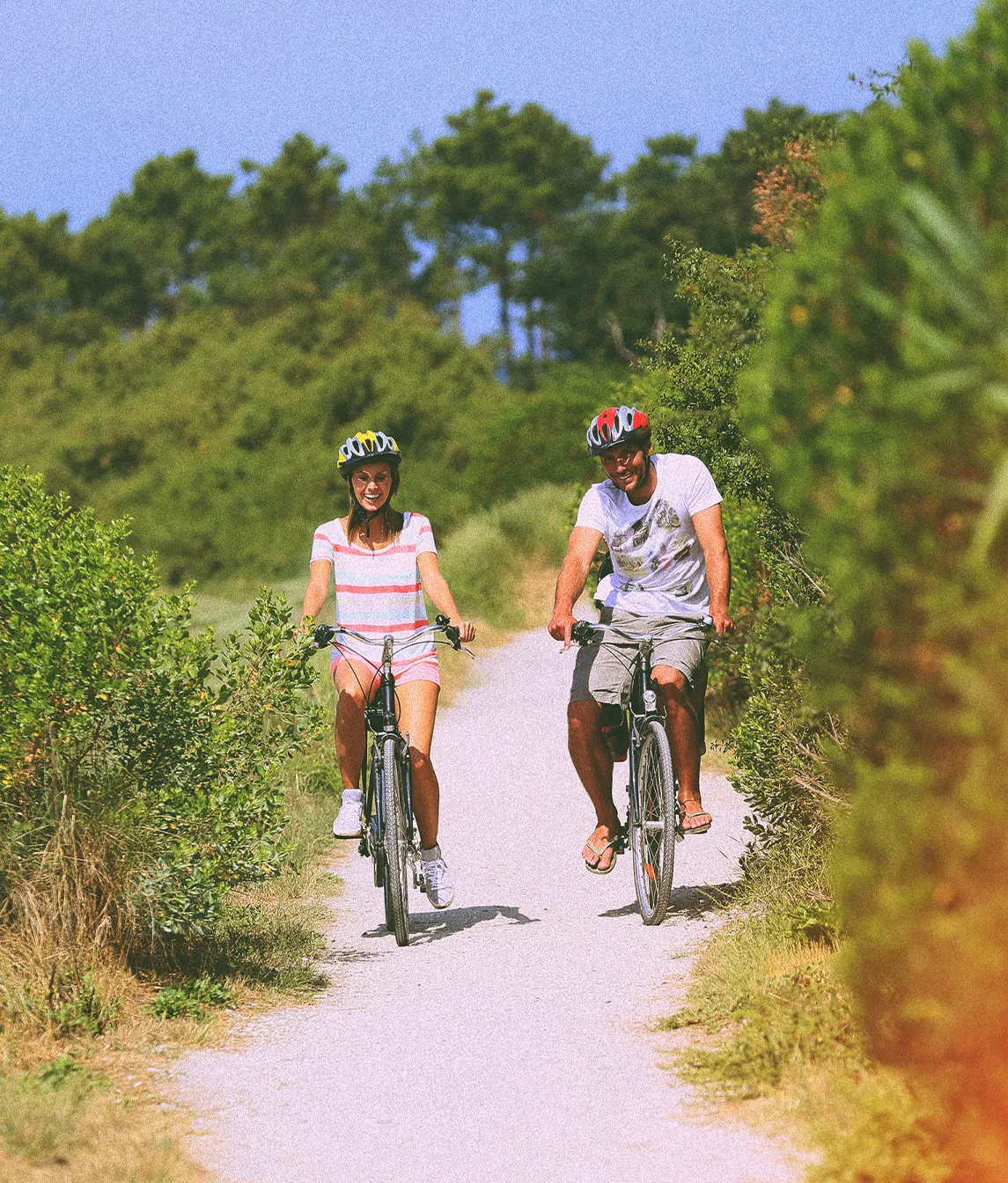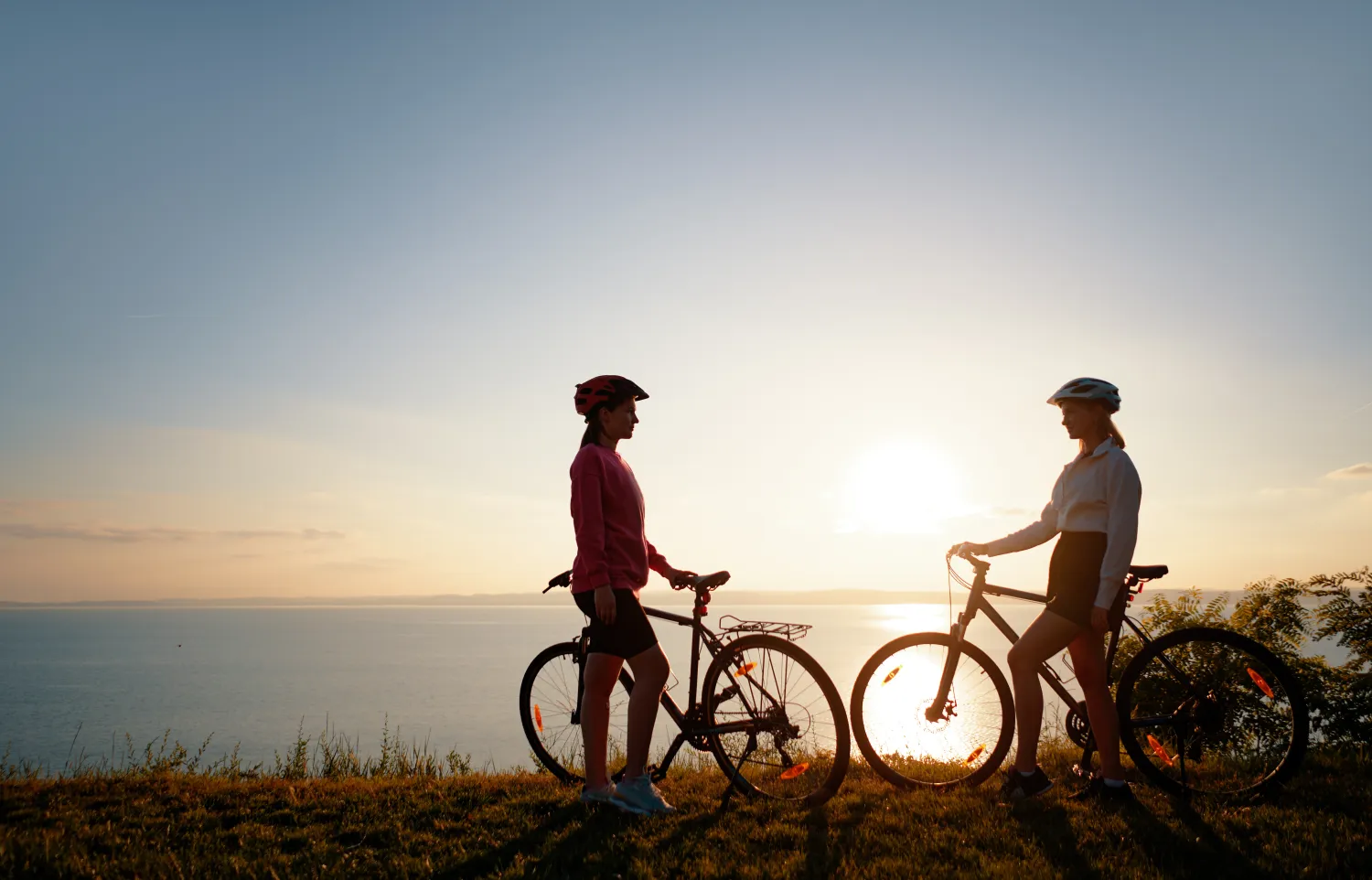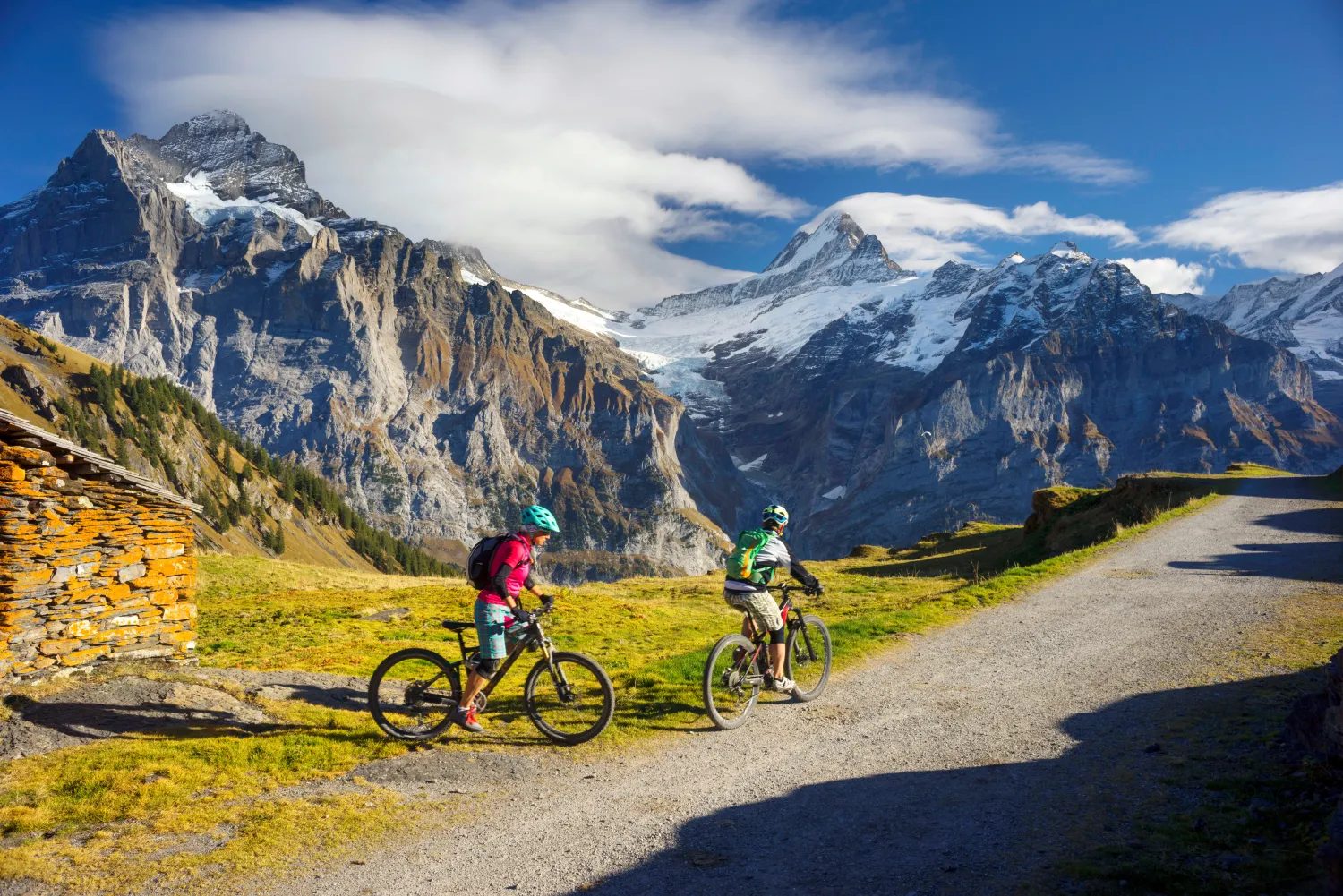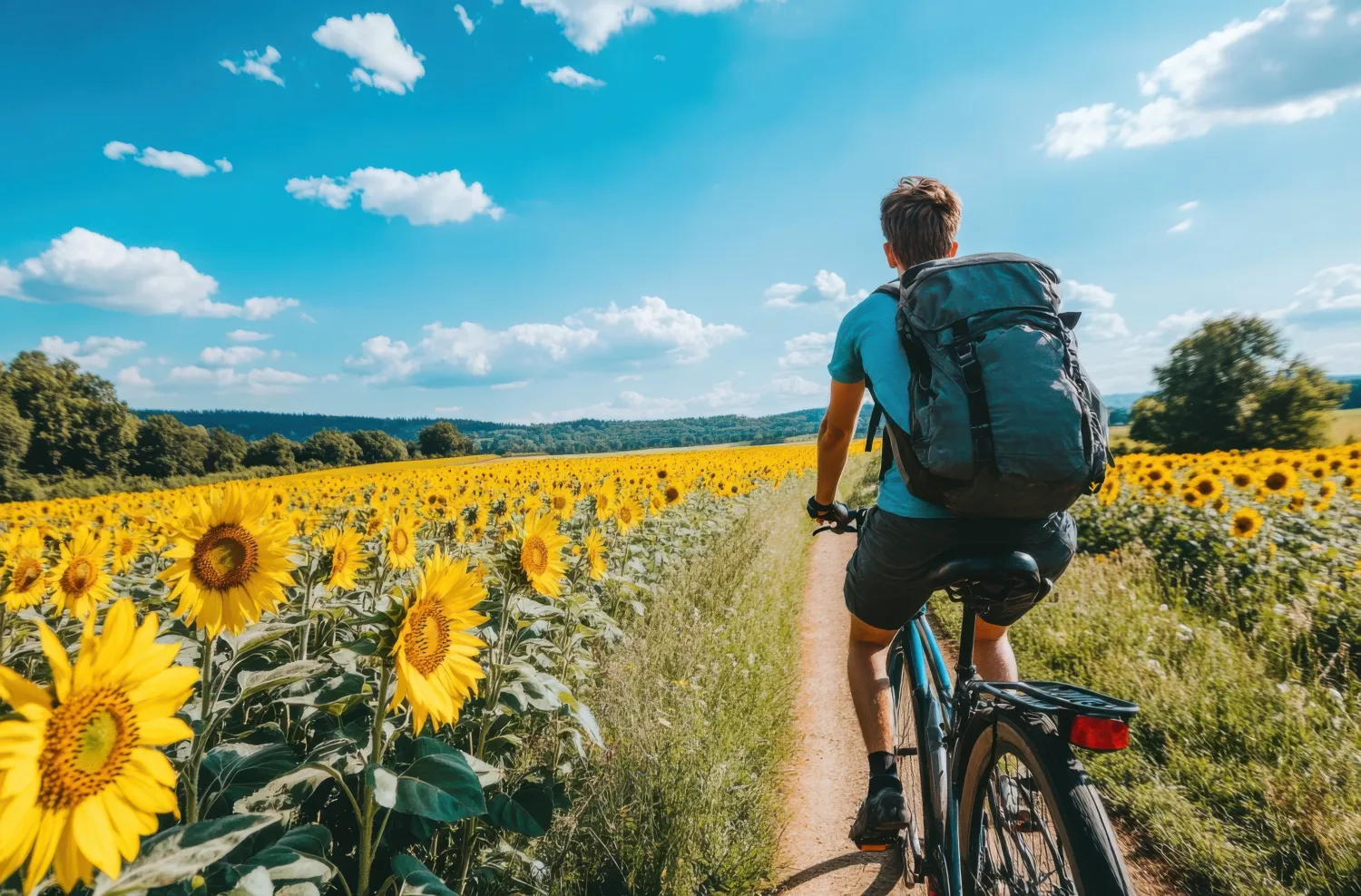Going on a cycling trip, whether for a few days or several months, is an extraordinary experience that requires the best possible organization. Of course, one of the first questions is where and how to sleep.
A bivouac is a temporary, minimalist camp that allows outdoor enthusiasts to rest and protect themselves before setting off again early the next morning, leaving no trace behind.
If you’re on a tight budget or simply want to sleep under the stars, try the bivouac adventure! But beware: bivouacking can’t be improvised, and you need to have the essential equipment.
To guide you, here’s a list of essential equipment for camping in the wilderness on your cycling trip.
1. A weatherproof tent
Even if you don’t plan to bivouac every night, a sturdy, waterproof tent that’s easy to set up and take down is essential. In case of bad weather, it will protect you from rain, wind and cold.
Depending on the region and the season, bad weather can sometimes take you by surprise, and out in the wilderness, it can be very difficult to find a place to retreat and take shelter.
On the other hand, during your cycling trip, you may find yourself staying at a public campsite. In this case, you’ll be more than happy to retain some privacy and keep your personal belongings out of prying eyes.
2. A sleeping bag
If you’re confident you can get by without a tent, one thing’s for sure: you can’t leave home without a sleeping bag. Wrapped up and zipped inside, it’ll keep you warm.
Sleeping bags also have the advantage of being particularly compact and easy to carry. Make sure you choose a “comfort temperature” bag and select the right filling. Goose down will keep you warmer than synthetic, but it can mildew more easily if wet.
3. Stove and crockery
There’s nothing like drinking your coffee before starting the day, or eating a hot meal before going to bed. A small, lightweight, collapsible camping stovea small aluminum kettle, a mug, a pocket knife, a spoon-fork and a small pot with folding handles, are all you need in terms of kitchen utensils.
The best way to find out what you really need is to set off on a short weekend and list what you’re missing. Mind you, it’s easy to overload yourself with gadgets that take up space and ultimately serve no purpose.
4. Flashlight or headlamp
Being able to light up your camp after dark is more than essential. An LED headlamp is your best ally when night falls. You’ll need it when you’re cooking, repairing your bike, or simply when you need light with both hands free (which is often the case when you’re bivouacking).
5. An inflatable mattress
An inflatable mattress may seem superfluous, but it makes for a more comfortable night’s sleep and a better recovery after a long day in the saddle. In fact, depending on the surface you’ll be riding on (grass, sand, gravel…), an air mattress may be more or less advisable.
If you prefer to leave without a mattress, for greater thermal comfort, at least opt for a mat to insulate you from the dampness of the ground and, depending on where you are, you can even opt for a hammock!
6. Hygiene and first-aid kit
In order to maintain basic hygiene during your cycling trip, and to take care of yourself in the event of minor injuries or ailments, you’ll need to bring a hygiene and first-aid kit containing : a toothbrush, a mini-tube of toothpaste (or toothpaste tablet), a microfiber towel, an all-in-one soap (for hair, face and body), tweezers, a bug-puller, antiseptic spray and bandages, a cream to protect against rubbing and irritation, insect repellent, saline solution, paracetamol, toilet paper and a survival blanket (to protect against hypothermia, gold side out). The opposite for protection from the heat).
You’ll need to complete your first-aid kit according to your destination and profile. Don’t hesitate to ask your doctor’s advice if necessary.
Finally, bivouacking with a minimum of comfort is perfectly possible, but be careful not to overload your bike. It’s dangerous and you risk premature wear and tear on your bike.
Also, find out about the legislation in the country or region where you’ll be bivouacking. The rules are very different from place to place, and in any case, respect the area by collecting all your garbage and avoiding disturbing or damaging the local flora and fauna.




